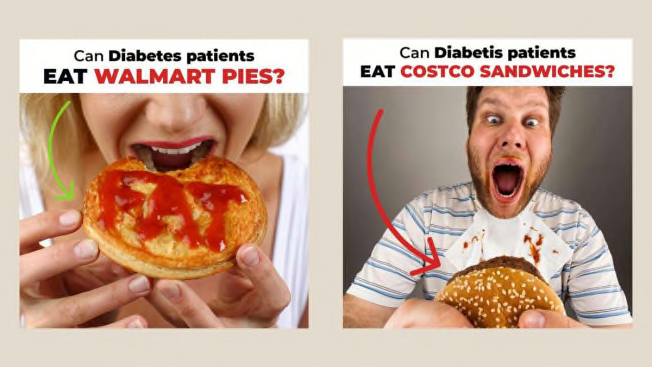I abandoned Facebook several years ago, realizing the value it offered me had gone from tolerable to terrible. While I no longer see updates from some of my childhood friends, I found it was quickly becoming a hellsite, so I deleted everything and quit. (Is anyone maintaining the Science-Based Medicine page there anymore?) Now as I watch the accelerating decline of Twitter, I’m wondering what social media is going to look like in a decade. Much as I’d like to see a blogging resurgence, the appetite for long form writing seems to have been replaced by media like TikTok. While I’m not sure what Facebook is like for users anymore, I always found the advertising was, at best, sort of sketchy. I recently found an interesting investigation into Facebook’s advertising standards. Consumer Reports examined dietary supplement advertisements appearing on the platform. Perhaps not surprisingly, it found advertisements for implausible, unproven, and even prohibited supplements. Facebook’s Ad Library is readily accessible and that’s where Consumer Reports started. The Library is accurately named: It’s a searchable database of every ad on Facebook. The library includes information on who created the ad, when it was published, and the ad itself. Type in a few key words and depending on where you’re located, you’ll see advertisements for diets, diabetes supplements, and more. When I tried “long COVID” I was presented with ads for cognition supplements, Ayurveda, and hyperbaric oxygen. Searching “weight loss” brings up dozens and dozens of ads.
Consumer Reports also used a tool called Citizen Browser. This is a desktop application that captures and analyzes advertisements as they are being presented to actual Facebook users. While it’s got limitations, it does give more detail on the user experience. Consumer Reports found the following products advertised:
- Comfrey is advertised even though it’s illegal to sell in the USA owing to the potential for causing liver damage and even death.
- Kratom is an herbal extract sold as a stimulant and pain reliever and was sold on Facebook Marketplace. There are numerous reports of death following ingestion. Following inquiries by Consumer Reports, most advertisements disappeared from Facebook.
- Something called “Focus + Recall” promoted as a brain supplement was targeted at users as young as 18 years old, as well as “women in STEM fields” (science, technology, engineering, and math).
- A “Reverse Diabetes Package” appeared to be marketed to those interested in the topic of diabetes. The ad copy read, “This diabetes type 2 patient just ate a Walmart pie without headaches or a spike in his sugar levels. 🤯” (With emoji):

Source: Consumer Reports. Note the typo in the second ad.
Few supplements are known to have any medicinal effects on the management of diabetes, and none are effective as medication.
While Facebook’s policies do not allow the sale of “unsafe” substances, most of these ads remained on the platform until Consumer Reports notified Facebook of its findings.
Supplements are a “Buyer Beware” market
There are many reasons why someone may choose to buy a dietary supplement. Many believe them to be more “natural” and possibly less risky than pharmaceutical drugs. It’s been covered in depth before, but is worth repeating, that the American regulatory framework for dietary supplements effectively excludes manufacturers of these products from most of the regulations that are in place for prescription and over-the-counter drugs, and puts the requirement to demonstrate harm on the FDA, rather than the onus on the manufacturer to show a product is safe and effective. Because there is no routine pre-market or post-market product testing in place, the FDA relies on other forms of monitoring in an attempt to ensure that supplements are safe. This includes collecting adverse event reports and consumer complaints, inspecting manufacturing facilities, and monitoring imported ingredients. In exceptional circumstances, the FDA can take supplements off the market by issuing a recall. The regulation of marketing claims is effectively left to the Federal Trade Commission (FTC), which can prosecute manufacturers for fraud.
In a small paper published this past August and cited by Consumer Reports, researchers conducted an analysis of 30 dietary supplements marketed to “support” or “boost” the immune system that were sold on Amazon. Using liquid chromatography-mass spectrometry, they found that of 30 products purchased, 17 had inaccurate labels, 13 were misbranded, and 9 contained additional ingredients not disclosed on the label. The authors noted:
Claims made on the labels of most dietary supplement products seem to stretch what would be considered as allowable claims, which can by statute and/or FDA regulations be made for dietary supplements.
Conclusion: Be skeptical of products hosted on Facebook ads
An investigative analysis by Consumer Reports found that Facebook is being used to market unapproved and even prohibited supplements. Despite its policies against marketing unsafe products, there appears to be little enforcement of this policy. Given the general state of quality control and marketing standards observed for dietary standards, it is highly likely that consumers are not only being misled but are possibly purchasing products that are ineffective and may even have health risks. Given social media platforms like Facebook have little incentive to prevent the marketing of these products consumers should be vigilant and skeptical of supplements sold or promoted online.

